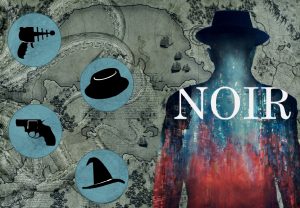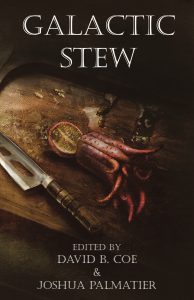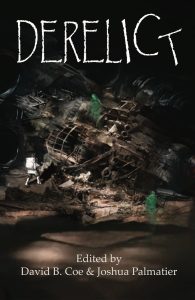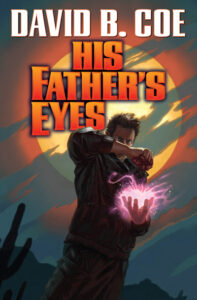If you follow my blog at all, you know that in this month’s posts I have been asking the question “What matters?” in a number of personal and professional contexts. Last week, in my first Professional Wednesday post of the year, I focused on the big things that matter to us as professionals and aspiring professionals — our ambitions, our favorite projects, our goals, both immediate and longer term. This week, I would like to address the question from a different perspective.
When we’re working on a project, we tend to concern ourselves with different things at different times. Some of those things matter more than others, and I have noticed when working with new writers, that those with somewhat less experience often wind up worrying unnecessarily about issues that really don’t matter all that much in the greater scheme of things. And at the same time, they will often not give much thought to things that really ought to be foremost in their minds.
So I thought I would look at a few common issues and give some sense of how much, in my opinion, these things matter.
For instance . . . .
New writers tend to worry a great deal about being “scooped,” about having someone — in the worst instance, someone more famous and accomplished than they are — come up with the same concept for a story or novel, rendering their idea unmarketable. Does this sound familiar?
Stop worrying. This is, to my mind, a definite “doesn’t matter.” You will not be scooped. Some thirty-plus years ago, when I was in graduate school, my dissertation advisor told me something that has stuck with me ever since. I expressed to him my fear that someone else would publish a dissertation on my topic before I had a chance to finish. (This is a fear that plagues grad students even more than it does fiction writers.) And he said to me, “If you think you can be scooped, you’re thinking of your dissertation topic too narrowly,” meaning, essentially, that all good dissertations operate on multiple levels. They are works of complexity and personal creativity and thus cannot be duplicated by someone else.
Stories are the same. I edit themed anthologies. For our latest collection, Artifice and Craft, Edmund Schubert and I have received over 530 submissions, all of them born of the same prompt. And no two are the same. You and I could start with the exact same story premise, and within ten pages our books would diverge, because we all write from personal experience, from idiosyncratic emotions, from unique imaginations. You will not be scooped.
New writers also tend to worry a lot about genre and marketing, and I understand why. Certainly I have been guilty of telling young writers to come up with elevator pitches for their projects. “Know how to sell it,” I often say. “Know who your audience is going to be.” And I believe this is sound advice as one is revising their novel and getting ready to send it off to publishers and/or agents. Early on, though, as we are conceiving the novel and diving into that first draft, I would argue that marketing and audience identification are secondary to the creative process. Write your book. Write the story that makes your heart sing, that stirs your creative passion. The marketing stuff will wait — and ultimately will be easier if you write the book or story you love. Commercial imperatives should not guide your imagination. You’ll have plenty of time later to figure out how to sell the thing to readers. At the start, our greatest concerns should be character, plotting, setting, pacing, prose. Those are what matter.
What about those things that DO matter, but that tend to get short shrift from too many authors? I would encourage every author, regardless of experience level, to think about a few questions as they begin work on their novels and short stories. First, we should consider who we ought to use as our point of view characters. I like to ask myself, “Whose story is this?” and base my choice of POV character on the answer to that question. If I decide to use multiple points of view — a question closely related to “Who?” is “How many?” — I will ask myself at the beginning of each new chapter or section, “Who is the key person in this scene?” More often than not, that person will be my POV character for the passage. I have run across many scenes that are written from the perspective of someone who is, in my opinion, the wrong character to tell that part of the story. As a result, I, as a reader, don’t have access to the thoughts and emotions I want to read at a particular moment, which can be incredibly frustrating.
We should also ask ourselves,“Are we starting our story in the right place?” So often, I read manuscripts that open way too early in the narrative. For page after page, we get background information and little-to-no important action or emotional content. Or, less commonly, I see manuscripts that begin too late, AFTER what really ought to be the inciting event. Be sure you know where to begin your story — and consider the possibility that what SEEMS like the right spot early in the writing process, might ultimately prove to be less than optimal once you have a better sense of your story. Be willing and prepared to revise accordingly
Finally, we should constantly ask ourselves if the scene we’re writing — if every scene we write — serves the larger narrative. It’s not that we can’t pursue subplots and secondary narratives. Of course we can. They enrich and deepen our stories. But they should also serve the whole. We should strive for coherence, for interconnection among our various plot threads. A secondary story for its own sake will only confuse and annoy our readers, distracting them from the narratives that are most important.
More on “what matters” next week.
For now, keep writing!!









 So far, we have received some very good stories. We have also received far, far more that won’t make the first cut. And so I thought I would go over again, briefly, the things that can make or break a story submission, at least for this editor.
So far, we have received some very good stories. We have also received far, far more that won’t make the first cut. And so I thought I would go over again, briefly, the things that can make or break a story submission, at least for this editor. Will I reject a story simply because it is single-spaced instead of double-spaced? No, I’m not quite that mean. But when reading a story, knowing I have literally dozens more waiting in the queue, I will only tolerate so many flaws before I reject it. Remember, I have 500 stories to choose from. I can and will find what I’m looking for. No story is ever perfect, so ask yourself, do you want to expend one of your flaws on formatting? Or do you want to present your story correctly so that I can judge it on its artistic merits? The answer seems self-evident to me.
Will I reject a story simply because it is single-spaced instead of double-spaced? No, I’m not quite that mean. But when reading a story, knowing I have literally dozens more waiting in the queue, I will only tolerate so many flaws before I reject it. Remember, I have 500 stories to choose from. I can and will find what I’m looking for. No story is ever perfect, so ask yourself, do you want to expend one of your flaws on formatting? Or do you want to present your story correctly so that I can judge it on its artistic merits? The answer seems self-evident to me. 1) I abhor the cliché, but think outside the box. As
1) I abhor the cliché, but think outside the box. As 
 One idea is to write my next Thieftaker novel, either in the form of a trio of novellas, like I did with
One idea is to write my next Thieftaker novel, either in the form of a trio of novellas, like I did with 
 I want to write at least one more
I want to write at least one more  After running away from social media for six weeks, and ignoring publicity opportunities and the like, I feel a little funny offering any professional advice to anyone on anything. Which, I realize, is entirely wrong-headed.
After running away from social media for six weeks, and ignoring publicity opportunities and the like, I feel a little funny offering any professional advice to anyone on anything. Which, I realize, is entirely wrong-headed.